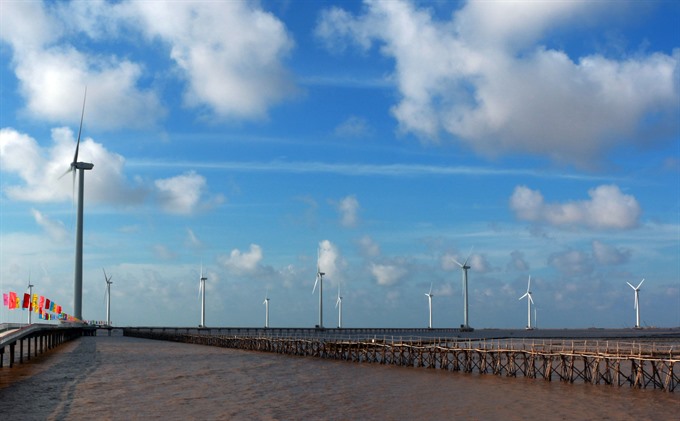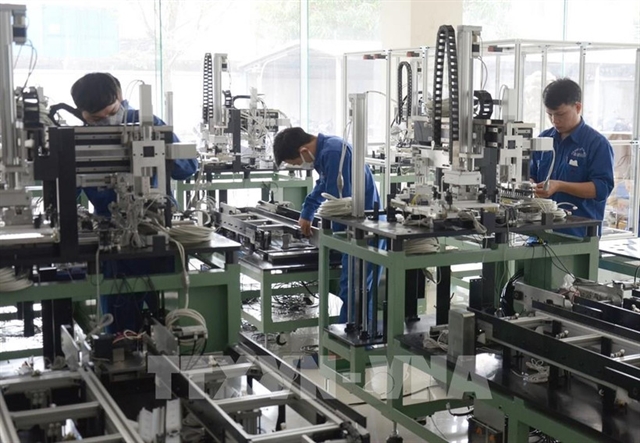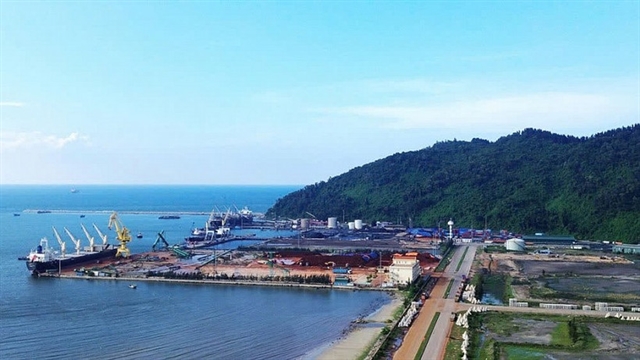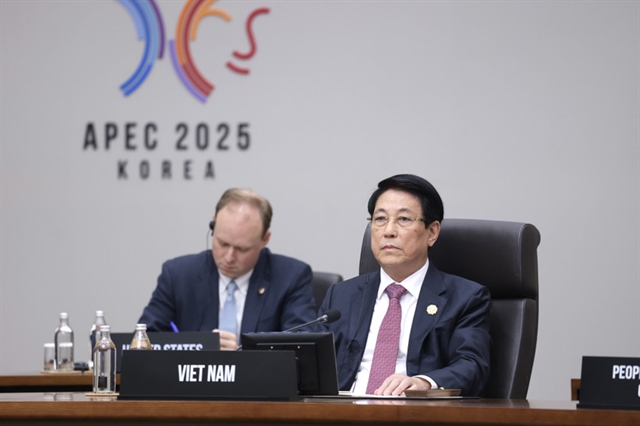 Economy
Economy

Experts at a wind energy workshop on December 5 recommended sustainable solutions for development of the wind power sector in Việt Nam.
 |
| A wind farm in Bạc Liêu City. Việt Nam can achieve an average annual growth of 7 per cent in the wind energy sector over two decades (2016-2035), experts say. — VNA/VNS Photo Thanh Liêm |
HCM CITY — Experts at a wind energy workshop on Tuesday recommended sustainable solutions for development of the wind power sector in Việt Nam.
Organised by Vestas Wind Systems from Denmark in collaboration with the Ministry of Industry and Trade (MoIT), the workshop attracted many foreign experts in the field of wind energy and representatives of organisations and agencies.
Nguyễn Ngọc Hưng of the MoIT’s Institute of Energy said Việt Nam had turned into a net energy importer since 2015.
Results of a business-as-usual (BAU) scenario show that Việt Nam could achieve an average growth of 7 per cent a year in the 2016-35 period in the wind energy sector by mobilising funds and improving efficiency of capital use.
There are four wind power projects in the country located in Bạc Liêu, Bình Định and Bình Thuận provinces. Around 50 wind power projects have been registered.
Vũ Chi Mai of MoIT said: “Wind speed potential in the central provinces of Ninh Thuận and Bình Thuận is higher than in other provinces in the country.”
Experts from Vestas discussed technical solutions for turbine selection; successful grid connection and compliance; on-time, on-scope project delivery; and operation and maintenance of wind farms.
Michael Perkins, a wind and site specialist, said that “Maximum value could be captured while minimising development risk to achieve the optimal technical and commercial solution.”
The investment director of IFU, the Investment Fund for Developing Countries, Otto Vinther Christensen, said that Việt Nam should learn lessons from other countries that had invested in wind power.
It is important to avoid bureaucratic and cumbersome legislation, have strong project management, know-how to obtain local financing, tackle infrastructure bottlenecks, and take advantage of cheap labour, according to Christensen.
Vesta is one of the world’s largest wind service provider. — VNS




